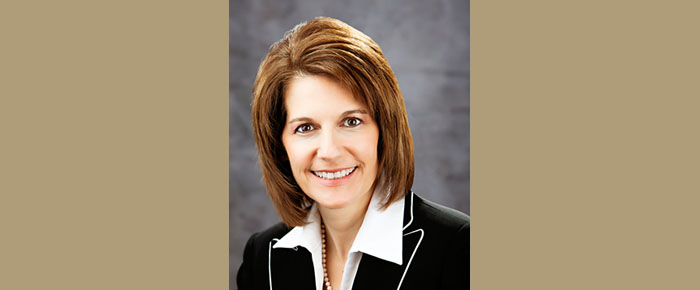
In January 2007, Catherine Cortez Masto began serving her first term as Nevada's Attorney General. In February of 2007 she advocated for the creation of a statewide Methamphetamine Working Group to combat the use and distribution of methamphetamines in Nevada. General Masto fought for a new state law that restricts the sale of materials used to manufacture meth and added new criminal penalties for engaging in certain activities related to the manufacture of meth. She sponsored a bill to create a permanent Working Group to fight all substance abuse including prescription and synthetic drugs. General Masto helped secure funding for the Drug Endangered Children Alliance. She is currently the chair of the Substance Abuse Working Group.
General Masto also created a senior protection unit in her office ensuring for the first time that her investigators and prosecutors would have the necessary tools to pursue those who abuse, neglect or exploit seniors in our communities. She sponsored a bill to include additional civil penalties for crimes against the elderly including assault, battery, larceny and mortgage fraud.
A lifelong advocate for women and children, General Masto created an advisory committee on victims of crime to address funding, resource and enforcement issues. The advisory committee successfully fought for state laws to authorize victims of sexual assault to seek a protective order, and to provide for felony penalties for the crime of domestic violence strangulation. General Masto introduced a bill to organize a multi-disciplinary team to review the deaths of domestic violence victims, called the Domestic Violence Fatality Review Statewide Team, which she chairs.
General Masto's dedication to children in our communities has resulted in new laws strengthening the registration and notification requirements of convicted sex offenders and offenders against children; prohibiting an individual from using the Internet to access child pornography; preventing a person from luring someone believed to be a child; and strengthening child custody laws.
Prior to her service at the Attorney General's Office, she worked as an assistant county manager for Clark County, Nevada. She also served as a federal criminal prosecutor for the United States Attorney's Office in Washington, D.C. and was chief of staff to Governor Bob Miller.
General Masto, a native Nevadan, attended the University of Nevada Reno, graduating with a Bachelor of Science Degree in 1986 with a major in Finance. She graduated Cum Laude from Gonzaga University School of Law, in Spokane, Washington in 1990. She is married to Paul Masto a retired U.S. Secret Service Agent.
ACAMS Today:You have developed and implemented various initiatives, including protections for seniors. What were some of the challenges facing Nevada that led to the creation of the senior protection unit?
Catherine Masto: I was born and raised in Nevada. Growing up I saw seniors being exploited. I also saw my grandparents constantly being bombarded with fraud scams. In addition, when I became the Attorney General we had quite a few retirees coming to live in Nevada. My office is responsible for the consumer protection component and I wanted to make sure we were doing everything we could to protect seniors. In order to accomplish this goal I introduced a bill to allow my office for the first time to investigate and prosecute for elder abuse neglect and exploitation. My office has secondary jurisdiction to the DEA's office who has primary jurisdiction, but it was important to us because it goes hand-in-hand with the outreach and prevention component and the follow-up on the investigation/prosecution. Unfortunately, we were not given the resources to staff it, so we have had to use existing resources within the office. The internal focus in the office was to change and take some of our resources and gear them toward the senior protection.
AT: Have you seen a reduction in elder abuse since you have taken office?
CM: Unfortunately, we have not seen a reduction in elder abuse. The downturn of the economy and an increase in mortgage fraud has only increased the types of scams and crimes affecting the senior community. The other piece of elder abuse that is sometimes overlooked is the exploitation of seniors from family members or friends. Unfortunately, this type of exploitation does not ever go away.
For the past four years Nevada has faced an increase in scams and schemes due to the struggling economy. My focus has been on prevention of these scams and schemes. My office has accomplished this by bringing awareness to the senior community. We have been going to senior groups, centers and advocacy groups around the state and talking about the latest scams and schemes that exist. This awareness will help seniors avoid becoming victims. We have educated and informed the senior community as to whom they can contact if they need additional information or if they become a victim of a scam or scheme.
AT: How can financial institutions help fight elder abuse?
CM: Financial institutions are great partners, particularly in rural communities. My office was able to reach out to these FIs and partner with them to assist seniors. In rural areas, seniors will rely on their local FI for their retirement funds, bank accounts, etc. and community bankers get to know the seniors in their respective communities. When it comes to investigating elder abuse, we rely heavily on complaints so it is very important for us to have the local financial institutions as our partners. Investigations are complaint driven and if we do not have the local bankers referring the seniors to the Attorney General's office, we are not able to help them.
AT: Methamphetamine manufacture and use is a problem for many states. How has Nevada combatted the financial component of these criminal acts?
CM: In 2007, when I came into office the methamphetamine use in Nevada was extremely high. My office tackled it from various sides: treatment, education and prevention, law enforcement and legislative. We were able to raise awareness of meth abuse; in fact the prevalent drug abuse in Nevada was one of the reasons why I wanted to be in the attorney general's office—to help combat the drug problem the state was facing and to raise awareness. My office raised enough awareness that when it was time to pass legislation we had the support of all the legislatures. Legislation was key, because it gave law enforcement more tools to tackle this problem, but it also took some of the precursor drugs off shelf and it made it harder for the traffickers to get it and harder for the abusers to get the final product. The key to all of this was that we were able to receive funding for drug prevention. What we did with this funding is that we set up a state committee that I chair and there are various stakeholders that sit on that committee that are from different specialty areas (i.e., treatment, law enforcement, community coalition centers). Underneath the statewide structure we have 13 community coalitions who address the problems locally. This allows us to have a collaborative effort between the state level and local community. The money for prevention that came into the state from the legislature goes directly to these community coalitions to support their advocacy for addressing the methamphetamine use and all areas of substance abuse.
AT: What financial crime dangers are faced by rural populations?
CM: They face the same challenges that larger populations face, the difference is the rural populations lack the resources to address these challenges. In Nevada the rural communities are not located near urban areas and there is a lot of desert where criminal activity can occur, particularly drug trafficking. The key is collaboration between the AG office and these rural communities. In doing so the AG office works to bring resources to the rural communities to assist them in the fight against financial crimes. An example of how the AG's office was able to bring resources to the local community was by funding a prosecutor for the tri-county (Ely, Eureka and White Pine) area. The funding helped this prosecutor prosecute domestic crimes. This collaboration was so successful that we have duplicated this model in another part of the state.
Another partnership the AG's office has established is with the Native Americans in the state. We have built those partnerships by bringing awareness to the reservations and resources to fight the rural crimes.
The role of the AG is collaboration with our partners within the state. Particularly recognizing that the rural communities need the support of the AG office and they also need the resources to fight financial crime.
AT: What unique challenges are faced by law enforcement and compliance professionals in these areas?
CM: From a law enforcement perspective, when you have the smaller communities everyone knows everybody and it is difficult to come into these communities as an outsider and look for the bad guy. Everyone knows you are coming and from an LE perspective how do you get the bad guy without them knowing in advance that you are coming.
AT: As chair of CWAG how do you see your role regarding CWAG's current initiative on AML?
CM: In the past six years that I have been in office, I have noticed that any type of crime we have dealt with has an AML component. As chair of CWAG, I felt this was a good time to have a conference focusing on Transnational Crime and the Money Laundering. The important thing about having this conference would be to not only bring in law enforcement but to also bring in our private partners for a productive dialogue not only about transnational crime, but what we are seeing out there and the money laundering associated with it and how do we tackle it as partners.
AT: What holes, if any, do you see in the current AML regime and what, in your view, is the best way to address these deficiencies?
CM: Bureaucracy makes it difficult for the private sector to comply. There is a strong need for collaboration between private sector, compliance specialists and law enforcement in order to avoid silos. We need an increase in collaboration across states' borders and globally. We need to think globally and work together to come up with solutions to stop financial crimes.
AT: What lessons can you share from your involvement with CWAG for the compliance professional?
CM: Collaboration and coordination between public and private sectors across agencies, communities and networking is key. Also, sharing our expertise and addressing crimes is important.
CWAG came about because states had common issues and in working together we could take it to the next level and find solutions to financial crimes.
Interviewed by: Karla Monterrosa-Yancey, CAMS, editor-in-chief, ACAMS, Miami, FL, USA, editor@acams.org










